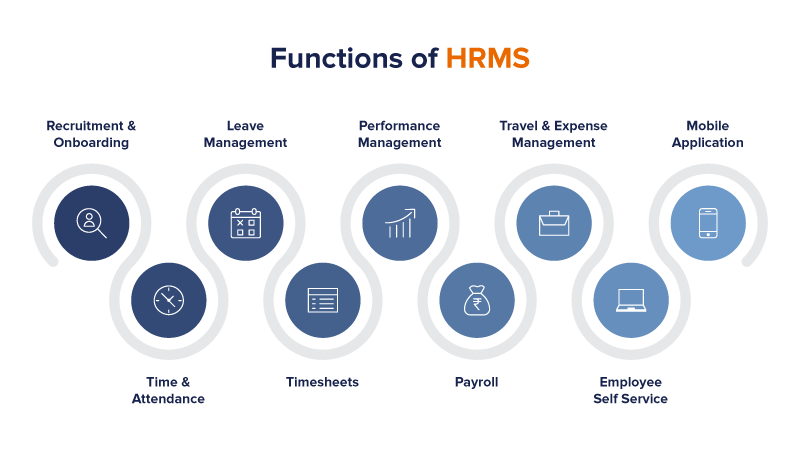Introduction
The recruitment process is a crucial aspect of human resource management, impacting an organization’s ability to attract and retain top talent. Human Resource Management Systems (HRMS) have revolutionized the way HR departments operate, offering a range of tools and functionalities that streamline and enhance the recruitment process. This article explores how HRMS helps HR professionals recruit better by improving efficiency, accuracy, and overall candidate experience.
Understanding HRMS
Definition and Components
HRMS, or Human Resource Management System, is a comprehensive software solution designed to manage various HR functions, including recruitment, payroll, benefits administration, performance management, and employee data management. By integrating these functions into a single platform, HRMS provides a centralized and efficient approach to HR management.
Importance in Modern HR
In today’s competitive job market, the ability to recruit effectively is essential. HRMS plays a vital role in modern HR by automating repetitive tasks, providing data-driven insights, and facilitating communication and collaboration within the HR team and with candidates.
Enhancing the Recruitment Process with HRMS
Streamlining Job Posting and Applicant Tracking
One of the primary ways HRMS improves recruitment is by streamlining job posting and applicant tracking. HR professionals can easily create and distribute job postings across multiple platforms, including job boards, social media, and the company’s career page. Applicant tracking systems (ATS) within HRMS allow for seamless management of candidate applications, ensuring that no applicant is overlooked.
Automated Resume Screening
HRMS can automate the initial screening of resumes using predefined criteria, such as keywords, qualifications, and experience levels. This automation significantly reduces the time spent on manual resume review and ensures that only the most qualified candidates proceed to the next stage of the recruitment process.
Enhanced Communication and Collaboration
Effective communication is crucial throughout the recruitment process. HRMS facilitates better communication by providing tools for scheduling interviews, sending automated notifications to candidates, and maintaining consistent communication. Additionally, collaboration features allow HR teams to share notes and feedback on candidates, ensuring a cohesive and coordinated approach.
Data-Driven Decision Making
HRMS offers powerful analytics and reporting tools that enable HR professionals to make data-driven decisions. By analyzing data on candidate sources, application trends, and hiring metrics, HR teams can identify areas for improvement and optimize their recruitment strategies. This data-driven approach leads to more informed decisions and better recruitment outcomes.
Improving Candidate Experience
Simplified Application Process
A positive candidate experience is essential for attracting top talent. HRMS simplifies the application process by offering user-friendly online application forms and mobile-friendly interfaces. Candidates can easily apply for positions, track their application status, and receive timely updates, resulting in a smoother and more engaging experience.
Personalized Candidate Engagement
HRMS allows HR professionals to personalize their interactions with candidates. By storing detailed candidate profiles and communication histories, HR teams can tailor their messages and follow-ups to address specific candidate needs and preferences. Personalized engagement helps build stronger relationships with candidates and enhances their perception of the organization.
Faster Response Times
Speed is a critical factor in recruitment. HRMS software in India enables faster response times by automating various aspects of the recruitment process, such as application acknowledgment, interview scheduling, and feedback sharing. Quick and efficient communication keeps candidates engaged and reduces the risk of losing top talent to competitors.
Reducing Bias and Ensuring Compliance
Standardized Evaluation Criteria
HRMS helps reduce bias in recruitment by providing standardized evaluation criteria and structured interview guides. By ensuring that all candidates are assessed based on the same criteria, HR teams can make fairer and more objective hiring decisions. This standardization promotes diversity and inclusion within the organization.
Compliance with Legal and Regulatory Requirements
Compliance with legal and regulatory requirements is a critical aspect of recruitment. HRMS helps HR professionals stay compliant by maintaining accurate and up-to-date records of candidate information, consent forms, and hiring practices. Automated compliance checks and audit trails ensure that the recruitment process adheres to relevant laws and regulations.
Increasing Efficiency and Reducing Costs
Automation of Administrative Tasks
HRMS automates many administrative tasks associated with recruitment, such as data entry, resume screening, and interview scheduling. This automation frees up HR professionals to focus on more strategic activities, such as candidate engagement and employer branding. Increased efficiency leads to a faster and more streamlined recruitment process.
Reducing Recruitment Costs
By improving efficiency and reducing the time-to-hire, HRMS helps lower recruitment costs. Automation reduces the need for manual labor, while data-driven insights help optimize recruitment spend by identifying the most effective sourcing channels. Overall, HRMS enables organizations to achieve better recruitment outcomes at a lower cost.
Conclusion
HRMS is a powerful tool that significantly enhances the recruitment process for HR professionals. By streamlining job posting and applicant tracking, automating resume screening, improving communication and collaboration, and providing data-driven insights, HRMS enables HR teams to recruit more effectively and efficiently. Additionally, HRMS improves the candidate experience, reduces bias, ensures compliance, and lowers recruitment costs. As the job market continues to evolve, leveraging HRMS will be essential for organizations seeking to attract and retain top talent.
